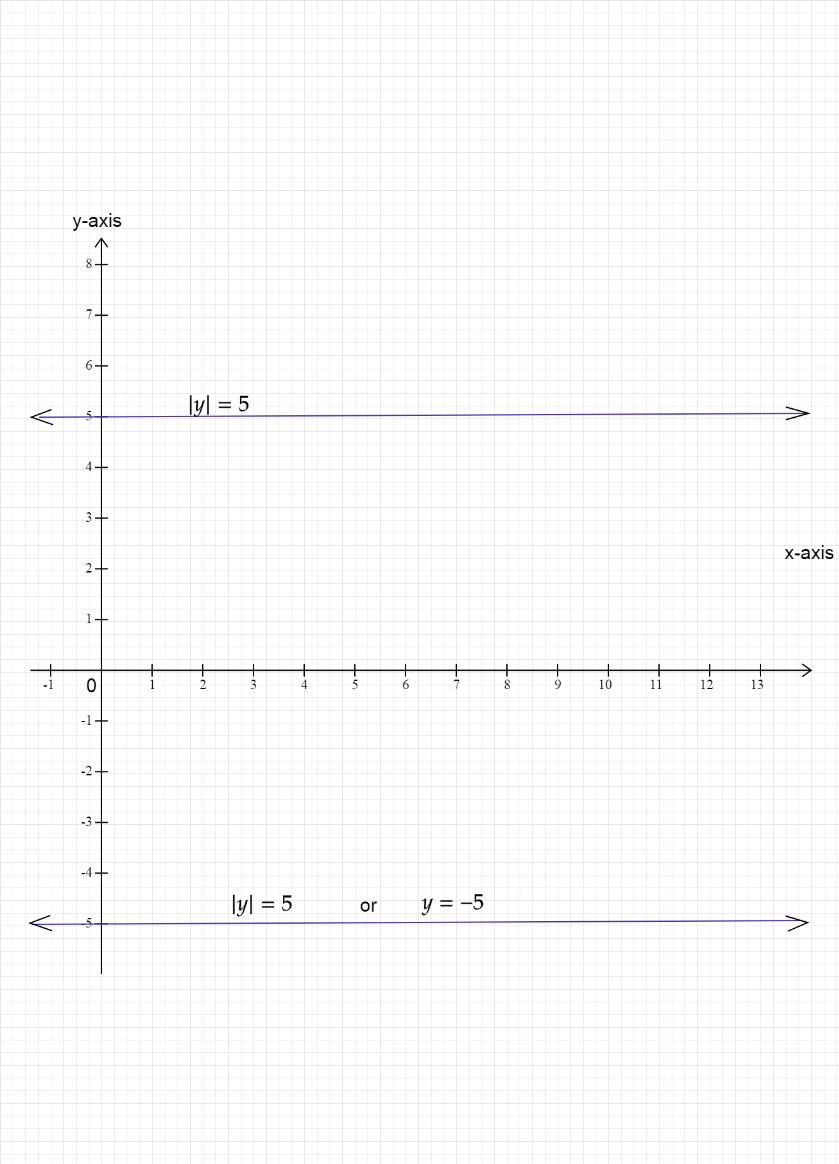Question
Question: How do you solve \(\left| y \right|=5\) ?...
How do you solve ∣y∣=5 ?
Solution
To solve the above given expression, we should know the concepts of absolute values and modulus. The modulus function, or the absolute value of a number implies that ∣x∣=x and is equal to x if x≥0 or is equal to −x if x<0 .
Complete step-by-step answer:
Given the expression:
⇒∣y∣=5
In the given expression the value of y can be greater than zero, that is, it can be a positive number, or it can also be lesser than zero indicating that it is a negative number.
Therefore, the expression can be simplified and also written asy=±5 .
This equation or expression given above, also represents the equation of a line that is parallel to the x - axis and passes through the point y=5 on the y - axis. Since, the line is parallel to the horizontal or x - axis, the slope of the line will be zero.
The slope-intercept form of the above line can be written as y=0x+5 , where 0 represents the slope of the line and 5 represents the constant in the equation of the line. The same concept will be applied to the graph of y=−5 as well.
The graph for the above equation ∣y∣=5 can be represented as below,

The graph can be plotted by taking and substituting different values of x in the equation y=0x+5 and then calculating the respective values for y. For example, if we take x=1 and substitute the value in the given equation, we get,
⇒y=0(1)+5
On simplifying the above equation, we get the value of y as,
⇒y=5
Similarly, we can take different values for x and find the value for y.
In the same manner, we can also plot the graph for y=0x−5 or y=−5 by taking different values of x and then finding the corresponding values for y.
Therefore, on solving∣y∣=5, we gety=±5
Note: Absolute value of a number means how far the number is from zero on the number line. This also means that while finding the absolute value of a given number, we remove any negative sign in front of the number and take its positive value only.
